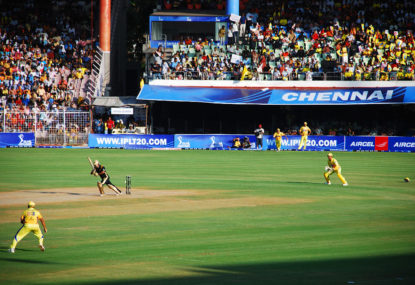WATCH: Freddy Flintoff's son dominates County 2nds game batting exactly like his dad
Check out some of the short-arm pull shots from Rocky Flintoff!

The Mumbai High Court recently delivered a historic verdict, ruling that all IPL games in May scheduled in Maharashtra are to be shifted out-of-state.
The Board of Control for Cricket in India (BCCI) seem completely blindsided by the decision. Such a scenario was probably never envisaged by the cricketing body.
Arguments that non-potable water would be used to hose pitches, and contributions by state franchises and the BCCI to the Chief Minister’s relief fund should be adequate recompense in response to Latur farmers’ grief and pain didn’t hold up.
While the judgement won’t actually resolve the acute water shortage in the state, the public interest litigation drew national and international attention to the plight of ignored peasants in the country’s most developed state.
The real heroes of this story are not the BCCI, the players, or the franchises, but the litigator – Loksatta Movement – and the judiciary.
The dying farmers of Latur needed to be heard and the Loksatta Movement became their voice.
Others such as Sunil Gavaskar and Rahul Dravid may disagree, calling the IPL a “soft target” against which the ire of aggrieved or suffering parties is directed.
Public opinion that the government and the BCCI, whose executive committee consists of leading politicians such as Sharad Pawar and Anuraag Thakur, care very little for societal problems was at the crux of the suit brought to the notice of the bench.
Ironically, the esteemed judges were more aware than the BCCI – who runs the IPL much like a corporate entity – that molding perception plays a huge role in handling a ‘crisis.’
While not quite a crisis for the BCCI, the IPL management team can draw a leaf from crisis management texts to avoid such onerous situations in the future. Scanning the horizon for perceived threats must also be an integral part of scenario analysis and forward planning.